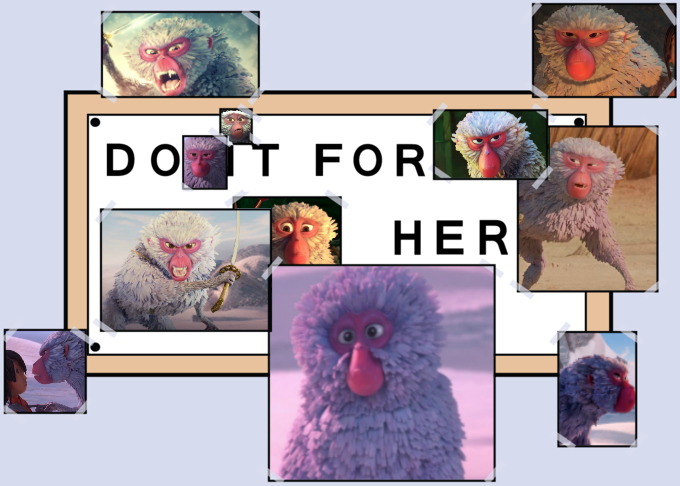02.08
I hate having a film that I want to watch, but I don’t either because of lack of time, there are other things to watch, genuine forgetfulness, and so on. I’m seldom known for being on point the moment something important pops up. And while many films can hold that distinction for me, one that just kept getting away was Kubo. Meant to watch it on August, but no theaters around me had it. Meant to watch it on November, but I’m too frugal to slip $30 for a DVD. And for half a year, “You should watch Kubo, it’s a fun movie” kept flowing into my thoughts while my lack of strong will stopped me from seeing it until now. Yeah, second article in a row of me talking about stuff I’ve taken forever to get to. Definitely not the last if I actually remember what I had on my backlog.
And what a pleasant surprise from Kubo. Even with all the hype, and how fans were justly loud and angry at a certain Sony movie about meat products doing better, I was still amazed over how great this movie was. Every shot and scene felt like it was crafted out of love. Being Asian myself, I’m always intrigued when a western animated film tries to adapt eastern elements, like in Mulan and Kung Fu Panda. Or even in shows like Samurai Jack and Avatar. It’s fun to pinpoint which details they got right and what cultural allusions they added in. Even the ones I don’t like are more often than not made because the creator has genuine curiosity for other cultures and wants to capture it in their own story. Kubo’s director Travis Knight is definitely such a creator, using all this experience to make such an ethereal fairy tale. Everything he puts into his film is sincere, where you can even get emotional resonance out of the waves of the oceans in some scenes. I know that sounds overly pontifical, but it’s true.
The film has deep meanings established, but all accessible enough to be told in a 101-minute kids’ movie. For instance, I appreciate the way the film handles death and how we deal with it. While death’s sad, the agony over it shouldn’t consume you as long as you utilize your memories for comfort, and participate in a few rituals to keep your mind clear of bad thoughts. A message told in many other animated films, but the way it’s presented here is more than exceptional. Mortality is simply one stage of a human’s journey, while the second is how they impact their loved ones. People can die physically, but never spiritually as someone’s there to remember them. And if you don’t agree with that like the Moon King did, then your perception of others, even your kin, gets thrown out the window. Now convey that message with giant eyes and a titanic skeleton, and you get a modern folk tale known as Kubo.
Kubo’s an alright character, especially when he’s played by someone who previously acted as such a nonentity as Rickon Stark. But the real charm comes from the way the supporting cast fill their shoes. Charlize Theron makes a great Monkey, and Matthew McConaughey’s fun performance makes me regret previously mocking his gargly voice in True Detective and those car commercials. I wasn’t too sure about why they cast Ralph Fiennes though, because he does an old Asian man voice for his character. Like if he watched clips of Aku from Samurai Jack as resource material for his performance, it sounded as if they wanted him to sound like Mako Iwamatsu since they obviously can’t get the actual Mako Iwamatsu. I’m not going to be one of those assholes who claims everything’s “Orientalist”, but they did have George Takei and Cary-Hiroyuki Tagawa in the movie too. Nothing was stopping Laika from using either of them instead, or getting the guy who played Uncle from Jackie Chan Adventures. While Fiennes was still good in his role, and I’m perfectly fine with non-Asian actors playing Asian characters in cartoons, there was just something off about that. It would be like if they made a Luke Cage cartoon, and Diamondback was played by Steve Blum who went out of his way to sound like a black guy.
So yeah, thumbs up to Laika, and hope this film gets a second lease on life from word-of-mouth.
